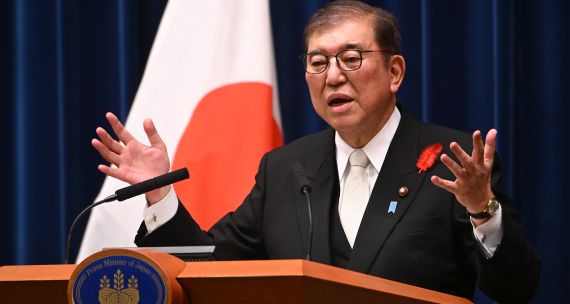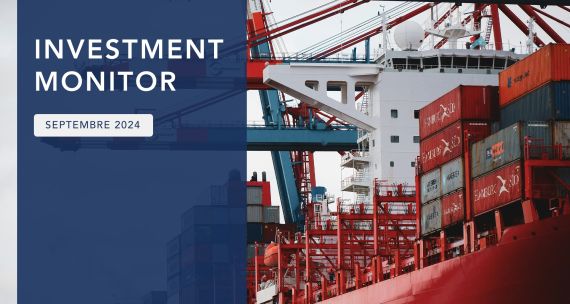Bien qu’éloignés géographiquement, le Canada et l’Asie sont aux premières lignes des campagnes de désinformation nuisibles menées par les États autoritaires. Ces campagnes visent à déstabiliser nos institutions démocratiques et à compromettre notre sécurité pour servir les intérêts des agents étrangers en affaiblissant la cohésion de nos sociétés, qui reposent sur la primauté du droit, sur des institutions démocratiques résilientes et sur la confiance de la population quant à l’information qui lui est transmise. Comme les campagnes de désinformation et leur portée ne connaissent pas de frontières, le Canada et ses partenaires d’Asie – et de partout dans le monde – ont collectivement avantage à renforcer la résilience de leurs institutions démocratiques en collaborant.
La désinformation et son incidence sur la société
Selon le Centre canadien pour la cybersécurité, la désinformation fait référence au fait de « diffuser de la fausse information dans le but de manipuler ou de tromper des personnes, des organisations et des États ou bien de leur faire du tort », et englobe toutes les activités de mésinformation, de désinformation et de malinformation (MDM).
Selon Media Defence, une organisation internationale de défense des droits de la personne installée au Royaume-Uni, la mésinformation est une fausse information qu’une personne diffuse tout en croyant qu’elle est vraie, tandis que la désinformation est une fausse information qu’une personne diffuse tout en sachant qu’elle est fausse. « C’est un mensonge délibéré et intentionnel, qui montre que les gens sont activement désinformés par des acteurs malveillants. » L’organisation définit également la malinformation comme une information qui se fonde sur la réalité, mais qui est utilisée pour porter préjudice à une personne, à une organisation ou à un pays.
On estime le coût mondial des activités de MDM à au moins 78 milliards $ US chaque année. Les institutions politiques, les entreprises et les citoyens du Canada ne sont pas à l’abri de ses effets néfastes et déstabilisants. Les activités de MDM, et en particulier la désinformation, communément appelées « fausses nouvelles » (fake news en anglais), sont omniprésentes dans les médias sociaux, comme X (anciennement Twitter) et Facebook, et sont utilisées par des acteurs nationaux et étrangers au cours et en dehors des cycles électoraux.
Selon Kyoko Kuwahara, Ph. D., du Japan Institute for International Affairs (JIIA), la désinformation ébranle la confiance du public à l’endroit des institutions, y compris les élections, et pourrait même constituer une menace pour la démocratie. Elle affirme également que les nouvelles technologies, comme l’apprentissage machine, le traitement des langues naturelles et réseaux d’amplification, sont utilisées pour discréditer les renseignements factuels et diviser les sociétés ouvertes. Dans ses travaux concernant le Japon qu’elle a menés avec le MacDonald-Laurier Institute, Mme Kuwahara a constaté que les campagnes de désinformation de la Chine comportent plusieurs dimensions et ciblent la région d’Okinawa, l’archipel qui compte 75 % des bases militaires américaines et du personnel militaire américain qui se trouvent au Japon. Dans certains cas, ces campagnes font la promotion de récits mensongers selon lesquels le royaume de Ryūkyū (actuellement Okinawa) était un État indépendant soumis à la dynastie Qing. Cette campagne localisée vise à créer une division sociale et identitaire, voire un mouvement d’indépendance, entre Okinawa et les principales îles du Japon. Dans d’autres cas, Beijing ferait circuler de fausses informations à Okinawa pour miner le soutien accordé à l’alliance entre les États-Unis et le Japon, qui assure la sécurité du Japon dans la région indo-pacifique.
Ce qui est extrêmement préoccupant pour les sociétés démocratiques ouvertes comme celles du Canada et du Japon, entre autres, c’est que les adversaires utilisent de plus en plus les médias sociaux pour mener leurs activités de désinformation. Selon l’historienne et philosophe allemande Hannah Arendt, « quand tout le monde vous ment en permanence, le résultat n’est pas que vous croyez ces mensonges, mais que plus personne ne croit plus rien. Un peuple qui ne peut plus rien croire ne peut se faire une opinion. Il est privé non seulement de sa capacité d’agir, mais aussi de sa capacité de penser et de juger. Et avec un tel peuple, vous pouvez faire ce que vous voulez. »
La capacité du Canada à collaborer pour lutter contre les activités de MDM
Pour que le Canada puisse efficacement lutter contre la désinformation, le pays doit collaborer avec des partenaires aux vues similaires pour limiter les efforts nuisibles de MDM sur nos sociétés. Cette initiative nécessite au moins quatre étapes.
Tout d’abord, nous devons renforcer nos capacités humaines et technologiques à repérer la désinformation et les voies de diffusion dont les acteurs malveillants tirent parti.
Nous devons ensuite élaborer de nouvelles stratégies pour éliminer et atténuer les activités de MDM. Pour ce faire, il faut investir dans la recherche sur les activités de MDM à l’échelle nationale et internationale, y compris en réunissant des experts pour qu’ils mettent en commun leurs pratiques exemplaires lors de dialogues de « voie 1.5 ou 2.0 ».
Ensuite, il importe de développer des capacités offensives pour décourager les récidivistes de recourir à ces outils de déstabilisation. Sans mesures dissuasives étoffées, les personnes et les entités à l’origine des activités de MDM pourraient estimer qu’elles ne risquent rien en usant de désinformation pour atteindre leurs objectifs politiques. La dissuasion constitue la meilleure défense.
Pour terminer, le Canada devra élaborer des stratégies et les mettre en œuvre avec l’aide de ses alliés et de ses partenaires d’Asie pour aider à protéger toutes nos sociétés contre la désinformation. Pour ce faire, il faudra faire appel à une combinaison de solutions technologiques, réglementaires et éducatives pour aider les gens à développer des capacités de lecture et de raisonnement critiques instinctives et ainsi faire rapidement la distinction entre de fausses et de vraies informations.
Pour garantir la réussite de cette initiative, les partis politiques de tous les horizons politiques devront accepter de ne pas user de désinformation dans leur course au pouvoir. Ils devront donc s’engager irréversiblement à ne diffuser que des renseignements qui ont fait l’objet d’une vérification. Les partenaires aux vues similaires pourraient également investir dans un processus de vérification des faits au sein de leurs espaces d’information nationaux, ce qui renforcera l’efficacité des engagements à empêcher la désinformation de se glisser dans nos sociétés ouvertes.
Partenaires de première ligne et approches à préconiser
Les États et les entités politiques qui luttent activement contre la désinformation seront des partenaires essentiels. En Europe, l’Ukraine et la Pologne continuent d’essayer d’annihiler les efforts que déploie la Russie pour déstabiliser l’UE et reconnaissent qu’il s’agit d’un concept de « sécurité indivisible ». Selon le Kremlin, la sécurité d’un pays ne peut être garantie au détriment de la sécurité des autres. En pratique, Moscou cherche plutôt à étendre la sphère d’influence de la Russie et à s’immiscer dans les affaires d’États souverains au moyen de diverses tactiques, y compris la désinformation.
Ayant toutes deux dû composer avec les pratiques de désinformation de la Russie et partageant plusieurs similitudes culturelles et linguistiques avec la Russie, Varsovie et Kiev ont déjà mis au point des tactiques et des stratégies pour repérer, atténuer et combattre les mesures de MDM que déploie Moscou, directement ou par l’entremise de tiers financés par la Russie.
L’OTAN joue également un rôle de premier plan dans l’atténuation de la désinformation en raison de ses capacités collectives. Étant donné son bagage dans la lutte contre la cyberguerre et les campagnes de désinformation russes, au moins depuis l’invasion de la Crimée en 2014, l’OTAN constitue un allié expérimenté et un partenaire de choix pour combattre la désinformation, en particulier en raison de ses vastes connaissances et ressources techniques.
Même s’il ne s’agit pas d’un remède miracle à la guerre de désinformation de la Russie, l’approche à quatre piliers qu’a adoptée l’OTAN pour contrer les attaques de MDM asymétriques s’avère utile. Cette approche vise à comprendre le contexte de l’information, à mobiliser le public, à exposer les cas importants de désinformation et à coordonner les efforts avec les alliés et les partenaires. L’OTAN crée du contenu de façon proactive pour renforcer la capacité de ses États membres à reconnaître la désinformation et pour aider la communauté mondiale à démystifier la désinformation russe. Ce contenu comprend, entre autres, des vidéos vérifiées concernant l’invasion de l’Ukraine par la Russie ainsi que des vidéos qui réfutent les théories selon lesquelles les États-Unis exploitaient des usines clandestines de fabrication d’armes biologiques en Ukraine.
Les activités d’ingérence étrangère auxquelles le Canada s’est buté dans ses élections de 2019 et de 2021 – en particulier celles de la Chine – et les efforts de désinformation clandestins que certains pays continuent de déployer pour déstabiliser la démocratie du Canada font de ce dernier un État de première ligne dans la guerre aux campagnes de MDM. La menace est d’autant plus dangereuse depuis que la Chine considère le Canada comme le point faible des États-Unis. Beijing profite d’Ottawa pour déployer des campagnes de désinformation qui sèment la division au sein de la société canadienne et qui minent la confiance envers le processus électoral, les positions des politiciens et le soutien accordé aux Américains afin d’ébranler la sécurité des États-Unis.
Alors que certains spécialistes affirment que des pays comme le Japon font preuve d’une résilience « accidentelle » en matière de désinformation en raison de leur culture, de leur langue et de leur scepticisme répandu envers la Chine, le ministre de la Défense du Japon estime que ce n’est pas suffisant et que le Japon doit « développer ses capacités en prenant en compte la dimension cognitive de la guerre de l’information pour participer à celle-ci. »
Création d’une coalition contre la désinformation dans la région indo-pacifique
Le Canada et le Japon devraient collaborer avec les États et les entités politiques de première ligne de la région indo-pacifique, comme la Corée du Sud, le Japon, Taïwan, l’Australie et la Nouvelle-Zélande, pour lutter contre la désinformation.
Dans son rapport Driving Wedges: China’s Disinformation Campaigns in the Asia-Pacific, Julia Voo de l’Institute for International Security Studies, qui a son siège au Royaume-Uni, décrit en détail les vastes campagnes de désinformation de Beijing dans la région et indique que Séoul et Tokyo sont les cibles d’initiatives de désinformation de la Chine, de la Corée du Nord et de la Russie.
Pendant ce temps, Taïwan se retrouve en situation de désinformation permanente, alors que Beijing inonde les médias de langues taïwanaises et chinoises de fausses informations pour essayer de miner la confiance du public envers les médias, la société civile et le gouvernement. Dans son rapport sur l’élection présidentielle de Taïwan de 2024, le Mercator Institute for China Studies (MERICS), un centre d’études et de recherches basé en Allemagne, indique que la Chine fait appel à une « approche sophistiquée et à plusieurs volets qui va bien au-delà des fausses nouvelles pour influencer l’opinion publique, d’autant plus que l’IA constitue une menace croissante. Les recherches montrent que la Chine participe à d’énormes opérations d’influence ».
Dans une entrevue accordée à MERICS pour son rapport sur l’élection de 2024, le professeur de sociologie Lin Thunghong a indiqué que Taïwan a adopté « une approche visant à sensibiliser la population, à équilibrer la désinformation en présentant d’autres points de vue et en vérifiant l’information ».
L’Australie et la Nouvelle-Zélande ne sont pas non plus à l’abri des campagnes de désinformation dans leurs médias sociaux et dans leur secteur des médias traditionnels. En effet, la situation des deux pays ressemble à celle du Canada, puisque la Chine tente également d’y réduire le soutien accordé aux politiques étrangères et nationales qui ciblent la Chine. Beijing et Moscou comprennent également que la mise en œuvre de campagnes de désinformation visant à accroître, à diluer et à corrompre l’information, les discours et les politiques gouvernementales parvient à diviser ces sociétés quant aux questions pertinentes qui pourraient compliquer la collaboration avec les États-Unis.
Par exemple, un groupe international de chercheurs a étudié plus de 3 000 publications concernant le référendum de 2023 sur la réforme des droits des Aborigènes en Australie qui ont été affichées sur la plateforme de média social de langue chinoise WeChat et a remarqué une prévalence croissante des renseignements trompeurs concernant le référendum et les communautés aborigènes diffusés dans l’ensemble des communautés de migrants parlant le chinois.
Danielle Cave et Albert Zhang de l’Australian Strategic Policy Institute (ASPI) ont abordé dans leur recherche l’utilisation d’une répression transnationale numérique et la diffusion de fausses informations dans des espaces ciblés. Ils ont montré que le Parti communiste chinois fait de plus en plus appel à de fausses informations pour dominer, influencer et réduire au silence le débat sur les questions d’importance pour la Chine ou pour cibler les personnes qui pourraient contribuer à façonner l’opinion sur la Chine.
Bien qu’il soit essentiel d’adopter une approche multilatérale pour lutter contre la désinformation, il faudra envisager plusieurs autres approches pour mobiliser les États et les entités politiques en première ligne. Le Canada, le Japon, les États-Unis, l’Australie, la Nouvelle-Zélande, l’Ukraine, la Pologne, la Corée du Sud et d’autres États de première ligne pourraient conclure un accord multilatéral, mais celui-ci ne pourrait pas comprendre Taïwan puisqu’il ne s’agit pas d’un État indépendant et que les pays susmentionnés ont tous adopté une politique d’« une seule Chine ».
Les plateformes de collaboration pour lutter contre la désinformation nécessitent des avantages comparatifs synergiques. Taïwan, qui est constamment la cible de cyberattaques et de campagnes de désinformation visant à ébranler la confiance envers ses systèmes politiques et sa sécurité, pourrait faire profiter le Canada et d’autres partenaires des leçons qu’il a tirées en matière de détermination et d’atténuation des effets de la désinformation.
Or, étant donné les complications liées à la situation de Taïwan, la formation d’un consortium non étatique d’universités ou d’instituts de recherche pourrait constituer une stratégie plus appropriée pour tirer pleinement parti d’une possible collaboration de Taïwan sans enfreindre les politiques d’« une seule Chine ».
De son côté, le Canada compte plusieurs instituts de recherche de pointe – comme l’Institut Périmètre – et dispose de la technologie nécessaire pour renforcer les stratégies existantes de lutte contre la désinformation. Il procède également activement à un examen national de la désinformation à la suite de l’élection de 2021, où des preuves crédibles d’ingérence étrangère perpétrée par un vaste éventail d’acteurs malveillants, y compris la Chine, l’Inde, l’Iran, le Pakistan et la Russie, ont été trouvées. On a découvert, par exemple, qu’un acteur lié à la Chine continentale a diffusé des renseignements trompeurs sur les médias sociaux de langue mandarine pour renforcer l’idée selon laquelle les politiciens conservateurs s’opposeraient farouchement à la Chine et faisaient preuve de discrimination envers les Chinois, en vue d’inciter les Canadiens d’origine chinoise à voter pour les candidats libéraux. Dans le cadre de cette campagne de désinformation, ces derniers étaient présentés comme étant moins enclins à adopter une approche qui favoriserait l’intérêt national par rapport à une Chine de plus en plus affirmée et parfois oppressante.
Promotion d’une coalition anti-MDM mondiale
Alors que le Canada se prépare à accueillir le sommet du G7 à Kananaskis, en Alberta, en juin 2025, Ottawa a l’occasion de faire la promotion d’un effort conjoint pour lutter contre la désinformation. Le Canada devrait également présenter l’idée d’une approche non étatique en faisant la promotion d’un consortium d’universités et d’instituts de recherche qui pourraient mettre en commun leurs ressources pour lutter contre la désinformation.
Les deux initiatives se compléteraient et seraient toutes deux inclusives, ce qui permettrait de tirer parti de la précieuse expérience des acteurs en première ligne, comme Taïwan, afin d’atténuer le fléau mondial de la MDM.
Le Canada devrait aussi profiter de l’occasion pour aider à lutter contre la désinformation et à renforcer la résilience des démocraties aux campagnes de MDM, en traitant de la désinformation dans tous les communiqués conjoints publiés par le G7. Un autre communiqué conjoint pourrait porter sur la désinformation et la militarisation des médias sociaux, comme lorsqu’un communiqué distinct sur la coercition économique avait été publié à l’occasion du Sommet du G7 à Hiroshima.
Enfin, en tant qu’hôte, Ottawa a la possibilité unique d’utiliser le G7 pour tenir une conférence, un atelier ou un séminaire sur la lutte contre la désinformation avant, pendant ou après le Sommet. Les experts et les chercheurs pourraient être invités à présenter aux dirigeants du G7 les tendances, les dangers et les approches stratégiques en matière de lutte à la désinformation. Évidemment, les experts devraient provenir des États situés en première ligne et des entités politiques qui sont confrontées aux dangers des activités de MDM.
• Edité par Erin Williams, gestionnaire principale de programme, et Vina Nadjibulla, vice-présidente recherche et stratégie, FAP Canada





